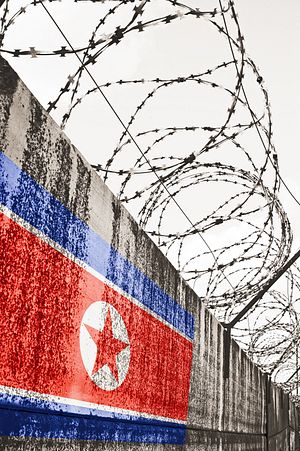The mysterious absence of North Korea’s supreme leader, Kim Jong-un, from public occasions for over a month has generated a great deal of speculation around the world. The fact that three top North Korean officials paid a snap visit to South Korea only caused more speculation; the most interesting rumors question whether the young leader is still in charge. Although one can not rule out the possibility that a coup has occurred, most analysts (here and here) believe that Kim Jong-un is ill but remains in charge.
Furthermore, a series of diplomatic moves by North Korea in recent months suggests that North Korea is now desperate to end its isolation in the international community. For example, it held a briefing at the U.N. to discuss its human rights record, and surprisingly admitted that there are labor camps in North Korea with the purpose of “reforming” people. North Korea also reached out to Japan earlier to discuss the issue of abducted Japanese citizens, hoping that Japan would ease some sanctions in return. Put all these recent moves together and one might conclude that indeed North Korea is adopting a “divide and conquer” strategy as it faces very strong international pressures to give up its nuclear program.
If so, then the question is whether North Korea’s new strategy can work. Although in the past North Korea has been quite effective in getting international aid (primarily from China and South Korea) without giving up its nuclear ambitions, this time it seems that North Korea has reached its limits in manipulating the international community for a set of reasons.
Among them, the most important factor is China’s changing attitude toward North Korea under the new leadership of Xi Jinping. The fact that Kim Jong-un has yet to pay a visit to China since he took charge in North Korea in 2011 is a strong signal. As North Korea’s largest trade partner and most important ally, China has given a cold face to North Korea since it conducted a third nuclear test last year. It is likely that China stopped exporting oil to North Korea for five months, a clear warning sign to North Korea regarding its uncooperative behavior. Xi is a strong leader and he is determined to end North Korea’s game of manipulation, provided that North Korea does not collapse quickly as a result. Chinese media, in the meantime, have also adopted a harsher tone towards North Korea, again signaling China’s anger.
The fundamental reason behind Beijing’s tough stance is China’s determination to end North Korea’s ambitious nuclear program, which is a strategic interest shared by the United States. Both powers understand that North Korea’s nuclear ambitions, if realized, could deeply destabilize Northeast Asia by encouraging a nuclear arms race. The U.S. approach to North Korea, strategic patience, has not resulted in concrete progress. It has become increasingly clear among Chinese analysts that Sino-U.S. cooperation is a must to end North Korea’s nuclear threat. According to this perspective, the first step is for both China and the United States to control the possible crisis that could result from North Korea’s nuclear program. After accomplishing this, both should work together to push for a “soft landing” of the North Korean regime. The U.S. should not seek a regime change whereas China should put more pressure on North Korea to embark on reforms. Regardless of Kim Jong-un’s health and status, leaders in North Korea must understand that they will have to adopt a “opening and reform” strategy, just like China did in the late 1970s.
This is not an easy task, particularly when China and the U.S. have different understandings of the North Korea issue. The U.S. should give up its high-pressure approach toward North Korea by viewing it not as a direct threat, and China should make more efforts to impose real sanctions on North Korea. If the two countries can work together effectively on North Korea, then it would be a meaningful step toward building a “new type of major power relations,” which undoubtedly would benefit Asia and the whole world enormously.

































